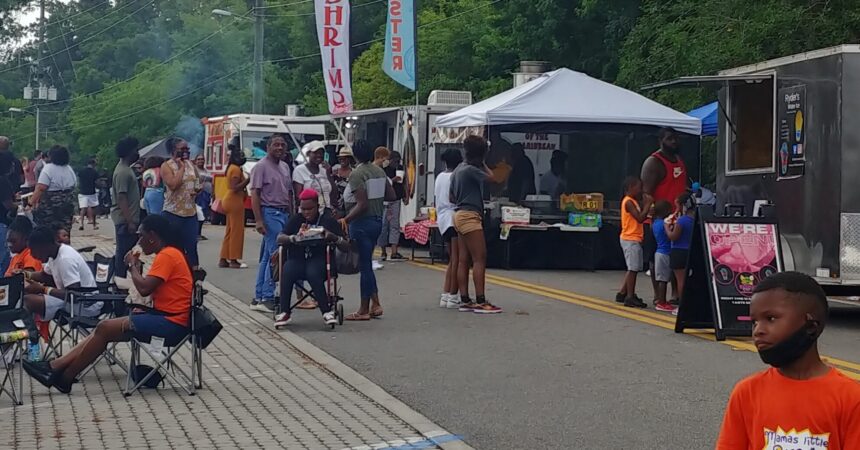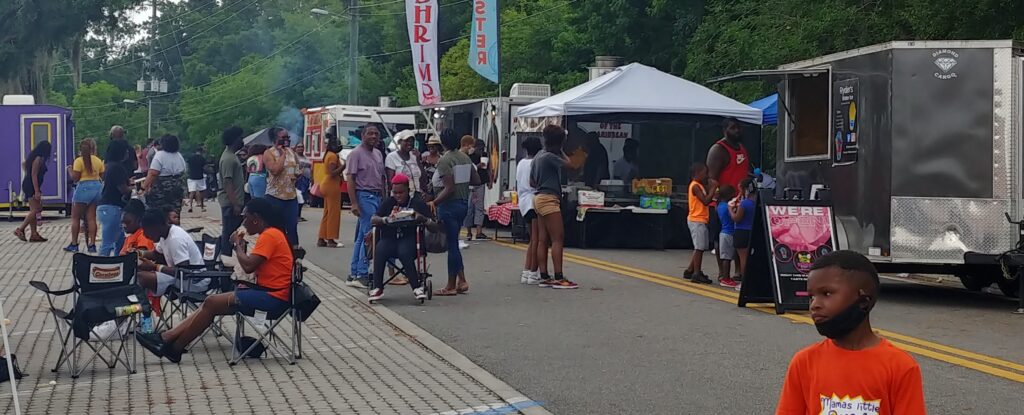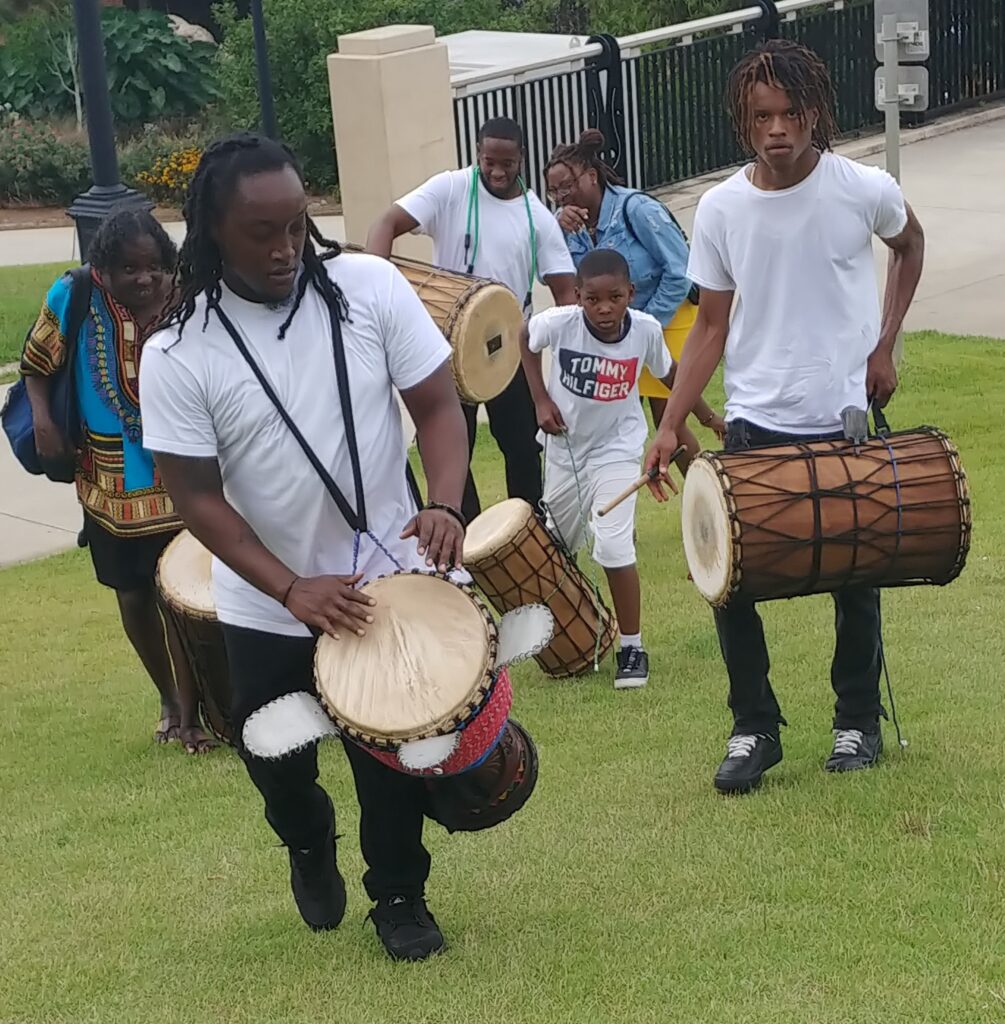
Celebration spurs concern about commercializing Juneteenth

Photo by St. Clair Murraine

Photo by St. Clair Murraine
By St. Clair Murraine
Outlook staff writer
While the first Juneteenth celebration was underway at Cascades Park last weekend, two compelling questions lingered with some people who attended.
The primary concern was whether the holiday would become a commercial event. Then, there were some who wanted to know why the June 19, 1865 end to slavery in Texas is now a federal holiday instead of May 20 when slaves in Florida received word of their emancipation.
But even with those concerns, the event staged by the Capital City Cultural Outreach drew a large crowd for most of the six hours that it lasted.
Vendors lined across the park from the west end to the east end. Claudette Cromartie, owner of the Chewbees hotdog stand was doing brisk business. Her menu also included chips, drink and nachos but it’s the hotdogs that she is most proud of.
“We are trying to make sure that the body is healthy,” she said. “If you’re going to eat those kinds of things, we’re making sure there is no pork.”
The stage in the middle of the park featured a lineup of singers, poets, bands and African dancers.
Drummers from the Ayoka African Drum and Dance group played around the park for more than an hour after they left the stage.
Maurice Clayton said it was uplifting to see the rows of start-up businesses and young entrepreneurs, but was concerned about how commercial the holiday could become.
“I would like this to be the beginning step in a long line of steps in correcting certain things that the US has promised every citizen,” said Clayton, who showed up with his wife and their infant child.
“It’s about time,” he went on to say about the federal holiday that President Joe Biden signed into law last week. “But we just can’t let this be the only thing. Yes, this is something we could be proud of.”
Indeed, Cromartie is glad for the holiday that recognizes a significant date in Black history. However, she said May 20, which marked the emancipation of slaves in Florida, will continue to be a day she observes.
But Saturday she was in the moment.
“Some people have always been free so therefore it’s not a significant thing for them,” she said, “but for us this is a significant day.”
The day that Biden made Juneteenth a federal holiday didn’t go over well in Florida, where slavery was proclaimed illegal in May 1865. Edward McCook read the proclamation at Knott House in Tallahassee, according to historian Larry Rivers.
The Florida proclamation was a month before the word got to slaves in Galveston, Texas.
However, the new holiday also comes with a bit of controversy over whether it means that Blacks now have their own independence day, even as the country has celebrated July 4 since 1776.
Demetrius Lindsey doesn’t see a comparison.
“It’s really two different histories,” he said. “Honestly, I really wouldn’t say one race has a holiday and the other race has a holiday. People celebrate certain holidays a certain way and I feel as Black people we should celebrate Juneteenth the way it should be celebrated.”
Most of the vendors were entrepreneurs and a few were established food truck businesses, such as the Tasty Turkey Legs, which operates out of a green truck. Having the businesses at Cascades in part was to market the coming of a brick and mortar restaurant on Sharer Road, said the owner who identified himself only as A-1.
Just down the hill from the food truck, host Tifany Hill reminded the audience in between performances what the occasion was about.
Al Williams II, who heads up Capital City Cultural Outreach, said the plans to celebrate Juneteenth was hatched long before Biden signed the holiday into law. Celebrating the potpourri of cultures in the city was the driving force, he said.
“Cultures don’t get a chance to intermingle and highlight the best part of that culture,” Williams said. “Even when it comes down to governing (and) policing it makes a better situation for each culture to understand each other.”







